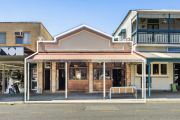
How Australia's e-commerce retailers survive and thrive in a cost-of-living crunch
The spectacular collapse of Australian online book seller Booktopia and the mass termination of most of its staff has sparked a period of soul-searching among many of the country’s other e-commerce entrepreneurs.
While they freely admit the cost-of-living crisis is hitting them all hard, they say their willingness to run their businesses with agility, flexibility and innovation is the secret to overcoming the current hurdles.
“We’ve definitely felt the economy pinch, and luxury goods are the first things to go, but we realised we had to work a lot smarter, and be more agile, as a result,” says Jacob Leung who, with his wife Sarah-Jane, started the gift pack and hamper business Good Day People during the first Sydney COVID-19 lockdown in 2020.
“We constantly have to look at the market and provide appropriate products. Our average gift spend had been $110 but that went down to $75 and we realised we needed to provide cheaper options.
“So we created some packages that started from $35 – and now they’re among our biggest sellers. For our customers, it’s about giving a gift rather than the actual product.”
Leung is one of the speakers at Online Retailer Conference & Expo – the biggest of its kind in Australia – at ICC Sydney on July 24-25, talking about the challenges of the market and how to avoid the fate of companies like Booktopia.
Even though there are some possible buyers circling after the company went into voluntary administration following its record loss of $16.7 million for the six months to December 31, there are many lessons to be learned from their example, e-retailers believe.
For example, keeping costs to a minimum is always critical. For the Leungs, the decision to set up the online gift venture to fill a gap they saw in the market meant they were playing to their strengths.
With Jacob, now 33, working in events, he knew about all about presentation, and with Sarah-Jane, 30, being a photographer and graphic designer, they didn’t have to pay for any photography.
They were able to keep other costs low as well. The pair began from a wardrobe in their spare room and considered renting a warehouse as the company grew, but found it would be half the cost to both live in, and work from, a big house instead.
In addition, the lease was for one year, rather than a three-year commercial lease, which gave them a lot more flexibility to adjust their model and mitigate risk.
They now rent a warehouse, but have divided it in half so they can sub-lease the other section as a photographic studio.
“We’re always looking for ways to diversify,” says Leung, 33. “It’s great to have multiple income streams.”
Esmio Australia is another successful online company started during COVID. It has everything to do with nails – including polish, press-ons, powders and art kits – and was founded by three sisters and a friend.
They were frustrated at constantly having to buy different products from different suppliers so decided to set up a one-stop online shop, each putting in $1000 to start off. Today their turnover has seven figures.
“When money is tight, some women might prefer to do their nails themselves at home to save money,” says director Rochele Hanna Politis, 31.
“We had our own personal jobs and one was a handbag business with a lot of social media followers the same age as us, so we could use that as a platform to push Esmio, and build an online community.”
That huge social media presence, and resultant customer loyalty, has proved a powerful driver for the business.
Her sister, schoolteacher Saryne Lagudi, 32, says that’s the huge difference between themselves and companies like Booktopia.
“When I think about Booktopia, and look at us, I see the community we’ve managed to build around our products,” she says.
“And social media is a completely free way to do that; using platforms like TikTok, Facebook, Pinterest, YouTube and Reddit, which is going to be the next big thing.
“It’s really hard to build a brand around books. For the customer, it’s more about price and the book itself and when they can have it delivered, and Booktopia had to compete with Amazon on that alone.
“But with us, even though we have a lot of competitors, if you have a better product and have built a strong community, they will support you no matter what.”
Another important differentiator is personability – another quality that the ASX-listed Booktopia never really had – says Briony Kennedy, 45, the person behind online skincare business Adorn Cosmetics.
But it could have done, she insists.
“If that were my business,” Kennedy says, “I would have set up something like a book buyback scheme, where you could return read books for recycling and receive a voucher towards your next book to start building brand loyalty, make you feel good about the environment and force you to spend again.
“I’d also be looking for new partnerships, like with Specsavers. I sometimes think there aren’t enough people thinking of these kind of marketing things.”
Kennedy has proved herself a powerhouse in online business, with a turnover in the many millions and a staff of about 15.
Possessing a background in sales, marketing and make-up artistry, she launched Adorn in 2008, sick of the excess of packaging used by other skincare brands and wanting everything to be cruelty-free.
She was the first to start colour-matching online, and pioneered the use of refillable pots without single-use boxes or plastic seals to prevent waste.
“When I started, I thought the brand and its products should speak for themselves,” says Kennedy, a Telstra Sustainability & Innovation state finalist and multi-award winner for customer-facing initiatives.
“Then I quickly realised that wasn’t the case. People wanted a story. So then I introduced myself into the brand and immediately there was a significant increase in sales.
“I found that personability really worked. People want someone they can connect with, they want to feel a part of the brand, and they want a phone number they can call or a live chat rather than AI.”
Kennedy now also runs a Facebook group with “live bathtime waffles” in her own Adorners Exclusive Community. She talks to customers while she’s in the bath – as that’s the only free time she has – on topics like how best to use moisturiser or whether you need to take foundation off.
“We have so many followers now, and people really love it,” she says. “It’s been an interesting journey but happily we’ve become successful over the years.”










